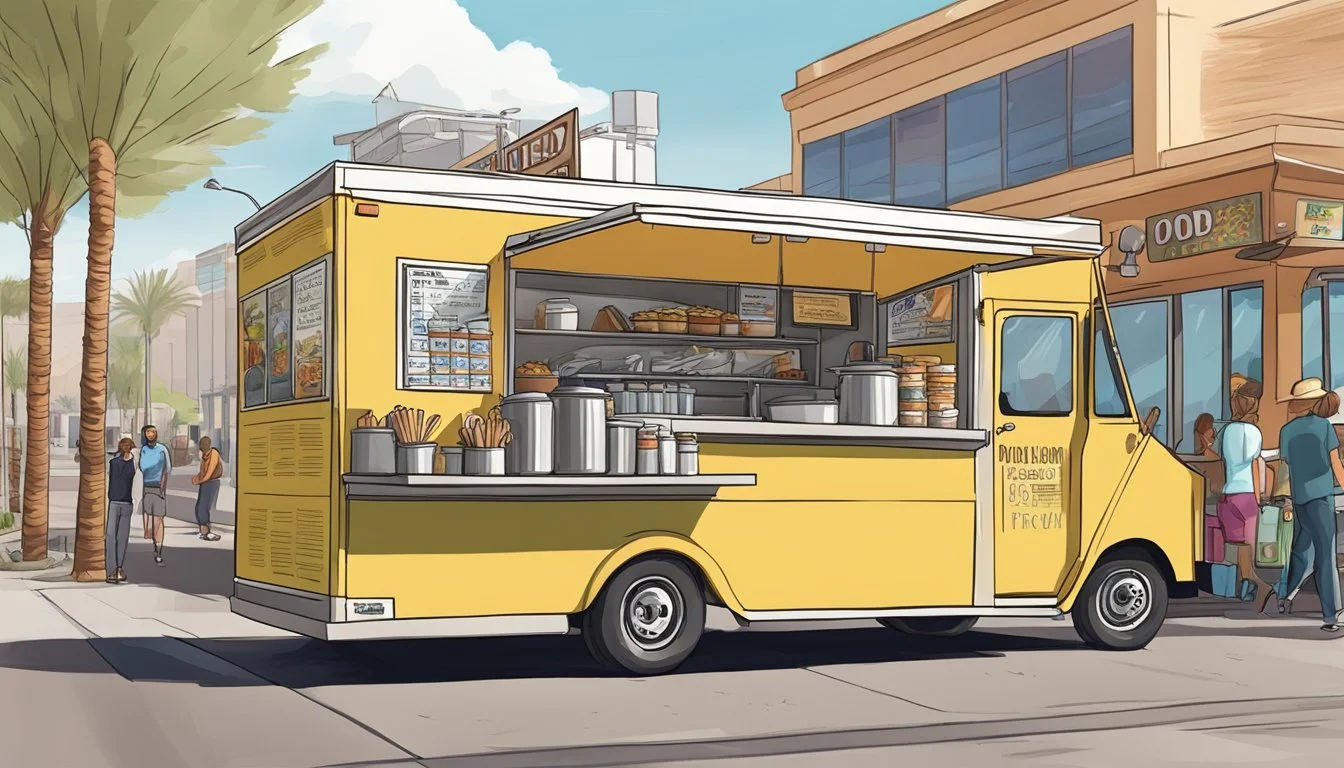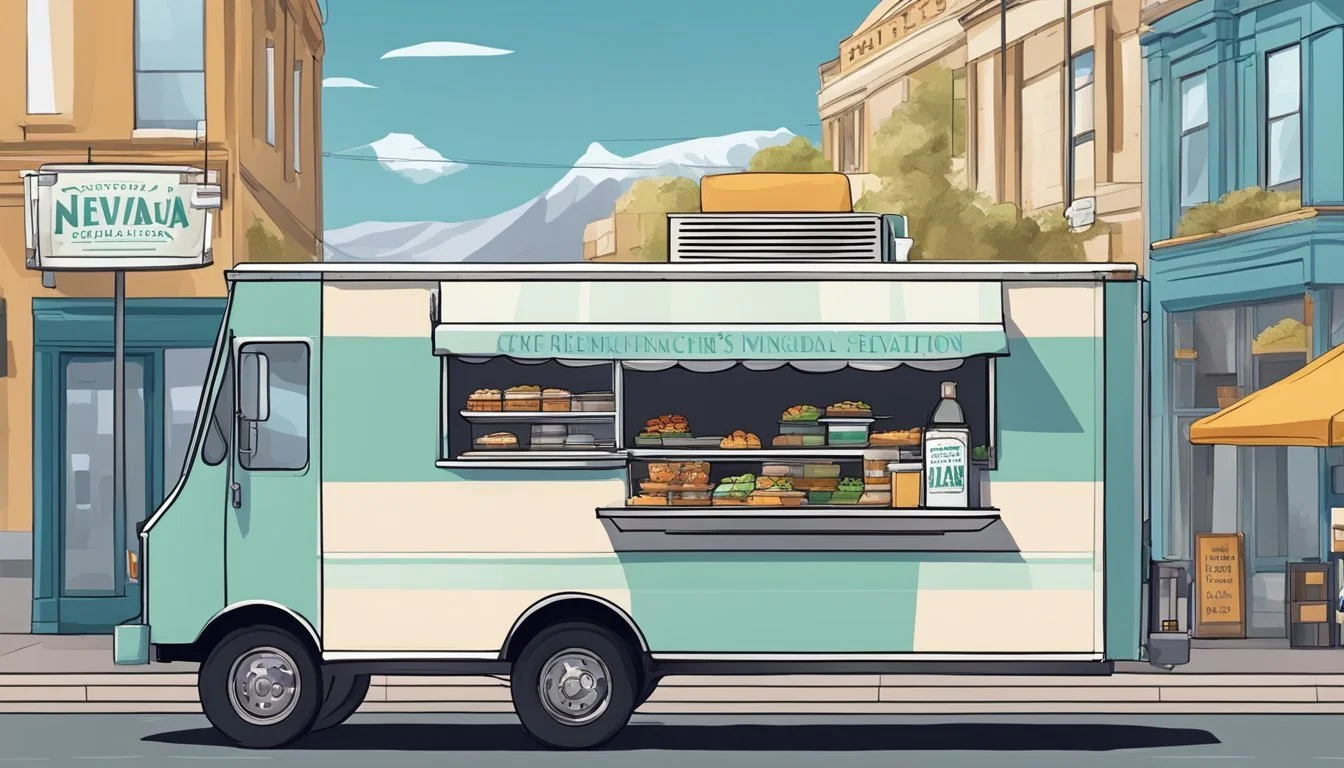Food Truck Laws Henderson, Nevada
Your Comprehensive Guide to Compliance
Operating a food truck in Henderson, Nevada, necessitates a thorough understanding of the local food truck laws to ensure compliance and smooth business operations. As the food truck industry thrives, it's crucial for vendors to stay informed about the specific licenses, permits, and regulations that govern mobile food establishments within the city limits. Henderson's regulations are designed to maintain public health and safety while supporting the growth of this creative, entrepreneurial sector of the culinary scene.
In Henderson, food truck operators must obtain the necessary permits, which may include a Business License from the city and a Health Permit from the Southern Nevada Health District. Compliance with food safety standards is mandatory, and trucks are subject to regular inspections to ensure these criteria are met. Understanding and adhering to the intricacies of Henderson's local regulations, such as designated parking and vending locations, is vital for food truck owners.
Additionally, it is important for food truck entrepreneurs in Nevada to keep informed about changes in legislation that might affect their business, such as those pertaining to tax laws, waste disposal, and OSHA regulations. Navigating these requirements can be a complex process, but with careful attention to detail, food truck operators can establish and grow their businesses legally and successfully in the thriving food scene of Henderson.
Understanding Food Truck Business Licensing
Launching a food truck in Henderson, Nevada requires navigating through a series of business licensing procedures to ensure legal compliance. Owners must understand the various types of licenses required, the application process, and considerations related to Employer Identification Numbers (EINs) and business structures.
Types of Business Licenses for Food Trucks
Food trucks in Henderson must obtain the appropriate business license to operate legally. The specific license needed can vary based on the truck's operations and locations served. For instance, some may need a Mobile Food Vendor license, while others require a Special Event Vendor license if operating temporarily at events. It's imperative that owners ensure their business is licensed correctly to avoid penalties and ensure compliance with local ordinances.
Applying for a Business License
The application process for a food truck business license in Henderson is straightforward. Owners must submit an application to the City of Henderson's Business License Division, providing detailed information about their food truck and the nature of their operations. They will also need to comply with health and safety regulations which include inspections by the Health Department and, potentially, the Fire Department.
EIN and Business Structure Considerations
Selecting an appropriate business structure, such as an LLC or partnership, is crucial for food truck owners. This decision can affect taxation, liability, and ongoing compliance requirements. Additionally, food truck businesses must obtain an Employer Identification Number (EIN) from the IRS for tax purposes. The EIN is also commonly required for opening business bank accounts and hiring employees.
For more information on the business licensing process in Henderson, Nevada, prospective food truck owners can review the resources offered by the City of Henderson's Business Licensing Division.
Health and Safety Regulations
In Henderson, Nevada, food trucks must adhere to stringent health and safety regulations to operate legally. These regulations are designed to protect public health and ensure that food service establishments like food trucks provide safe and hygienic dining options.
Health Permits and Inspections
Every food truck in Henderson must obtain a health permit from the Southern Nevada Health District. To comply with food safety ordinances, the food truck must pass an initial inspection that assesses its adherence to health codes, including proper waste disposal, temperature control, and cleanliness standards. Inspections are carried out regularly to ensure ongoing compliance.
ServSafe Certification and Food Handlers
Food truck operators and employees must possess a valid ServSafe certification or equivalent, indicating they have completed training in food safety practices and principles. Additionally, all personnel involved in food handling must possess a current food handler's card, demonstrating their knowledge of proper cooking, preparation, and storage of ingredients to avoid foodborne illnesses.
Food Truck Operational Guidelines
The food truck must adhere to operational guidelines that include maintaining clean and sanitized cooking areas, proper labeling of the menu items with ingredients and allergens, and ensuring all food is cooked to the correct temperatures. Compliance with these standards is essential to running a food service establishment and avoiding the risks associated with improper food handling and preparation.
Location and Parking Requirements
In Henderson, Nevada, food truck operators must navigate specific location and zoning requirements as well as adhere to strict parking regulations. These ensure public safety, prevent traffic congestion, and maintain a harmonious relationship with brick-and-mortar businesses.
Selecting a Viable Location
Food trucks in Henderson must be strategic in choosing locations that align with city zoning laws. Downtown areas and commercial districts often have designated spaces where food trucks can operate. However, finding a spot in Las Vegas or nearby cities requires a thorough understanding of variances and particular codes that govern street food vending. Food truck owners should consult the City of Las Vegas’ zoning ordinances to identify legal vending areas and avoid costly fines.
Parking Regulations and Restrictions
When it comes to parking, food trucks must abide by regulations that can vary significantly depending on the location within the city. Restricted areas include parking within 150 ft of a licensed restaurant entrance unless authorized by the restaurant licensee. Vehicles should be parked in a way that they do not obstruct pedestrian or vehicular traffic, and only in areas zoned for food truck vending. Specific parking lots may have designated spots for food trucks, allowing operators to conduct business without infringing on regulations.
Special Event and Temporary Location Permits
Operating at a special event often requires obtaining a temporary location permit. These permits are necessary for food trucks that plan to serve at festivals, fairs, and other community events in Henderson and throughout greater Las Vegas. Each event may have its own set of guidelines and spaces allotted for food trucks, with event organizers coordinating these permissions. To participate, vendors must apply for these permits in advance, ensuring that all health and safety regulations are met in their vehicle setup for the duration of the event.
Food Truck Operation in Henderson
Food truck entrepreneurs in Henderson must navigate a unique set of regulations to operate effectively and contribute to the flourishing Southern Nevada street food scene. Compliance with local laws, engagement with the community, and cooperation with established restaurants and bars are pivotal for success.
Specific Requirements for Henderson
In Henderson, food truck operators are mandated to obtain a variety of permits and licenses to ensure they meet health and safety standards. The City of Henderson requires these mobile businesses to have business licenses, as elaborated in the guidelines provided on their Business License Forms page. Moreover, operators must adhere to the food safety ordinances of the Southern Nevada Health District. It is critical that food trucks maintain proper waste disposal practices and temperature control for food to remain compliant.
Working with Local Restaurants and Bars
Interaction with local restaurants and bars can be multifaceted, as food trucks inject diversity into the Henderson food scene. Businesses can benefit from forging partnerships for special events or late-night service, where food trucks can provide additional offerings to patronize customers of these establishments. Coordination is essential to maintain a harmonious relationship and to enhance the overall dining landscape in Henderson.
Community Engagement and Customer Connection
Food trucks greatly rely on their ability to connect with their customers and engage with the Henderson community. Participation in local food truck events, farmers markets, and festivals can significantly strengthen customer relations. Effective methods to cultivate these connections include the use of social media platforms for the promotion of locations, specials, and events, fostering a loyal customer base enthusiastic about the vibrant Henderson food truck scene.
Financial Aspects of Food Truck Operation
Operating a food truck in Henderson, Nevada requires careful financial planning to ensure both compliance with local laws and the achievement of long-term success. Various costs and fees play into the overall financial framework, from initial startup expenses to the ongoing management of sales tax and growth strategies.
Estimating Startup Costs
Startup costs for a food truck can vary widely depending on the scope and scale of the operation. Prospective food truck owners should prepare for expenses such as:
Vehicle Purchase: The truck itself can cost between $50,000 to $200,000.
Permits and Licenses: Including health permits, business licenses, and additional permits required in Nevada.
Kitchen Equipment: The cost of which will differ based on the cuisine and service style.
Inventory: Initial stock of food and supplies needed to start operations.
Insurance: Coverage for the vehicle, business, employees, and liability.
Marketing: Investment in branding and promotion to introduce the food truck to the local market.
A precise business plan tailored to Henderson's market is essential to navigate these initial costs successfully.
Managing Sales Tax and Additional Fees
Food trucks in Henderson, Nevada must manage multiple financial obligations:
Sales Tax: Collected and remitted to the Nevada Department of Taxation, currently at a rate of 8.375%.
Business License Renewal: An annual cost that must be factored into financial projections.
Health Department Fees: Regular inspections ensure compliance with safety regulations, incurring additional fees.
It's crucial for food truck operators to maintain accurate records of all sales transactions and keep abreast of tax-related deadlines to avoid penalties.
Financial Planning for Sustained Growth
To foster sustained growth, food truck operators in Henderson must engage in strategic financial planning. This involves:
Regular Analysis of Expenses: Keeping costs like fuel, labor, and food supplies under control.
Growth Metrics: Monitoring sales figures to gauge the business's financial health and to identify patterns or potentials for expansion.
Emergency Funding: Setting aside a percentage of profits to handle unexpected costs or downturns in business.
Success in the food truck business hinges on a combination of fiscal discipline, astute planning, and a deep understanding of Henderson's regulatory and tax environment.
Nevada's Administrative and Local Regulations
Operating a food truck in Henderson, Nevada, entails strict adherence to the Nevada Administrative Code and local regulations. These regulations are designed to ensure safety, compliance, and proper functioning of food trucks within the state.
Navigating the Nevada Administrative Code
The Nevada Administrative Code (NAC) establishes the statewide health standards that all food establishments, including mobile food vehicles, must follow. Key components include proper food cart sanitation, waste disposal, and food safety practices. Specific sections within the NAC provide guidance on temperature control and compliance with OSHA regulations. To access the NAC chapters relevant to food trucks, individuals can reference official state resources.
Supplemental Food Establishment Application Process
When applying for a food truck operation permit in Henderson, applicants must complete a supplemental food establishment application. This application requires information about the vehicle, proposed operation, and owner details. Upon submission, local health authorities review the application to confirm that the mobile food establishment meets all compliance standards, particularly in areas regarding public health and safety.
Plan Review for Mobile Food Trucks
Before launching a food truck, operators are mandated to undergo a plan review process. This review includes an examination of the food truck design, equipment, and layout to ensure it aligns with the requirements set forth by the Nevada Administrative Code. A thorough review helps identify potential issues with temporary food establishment operations or regular mobile units, thus facilitating a smoother inspection process and reducing the risk of non-compliance.




